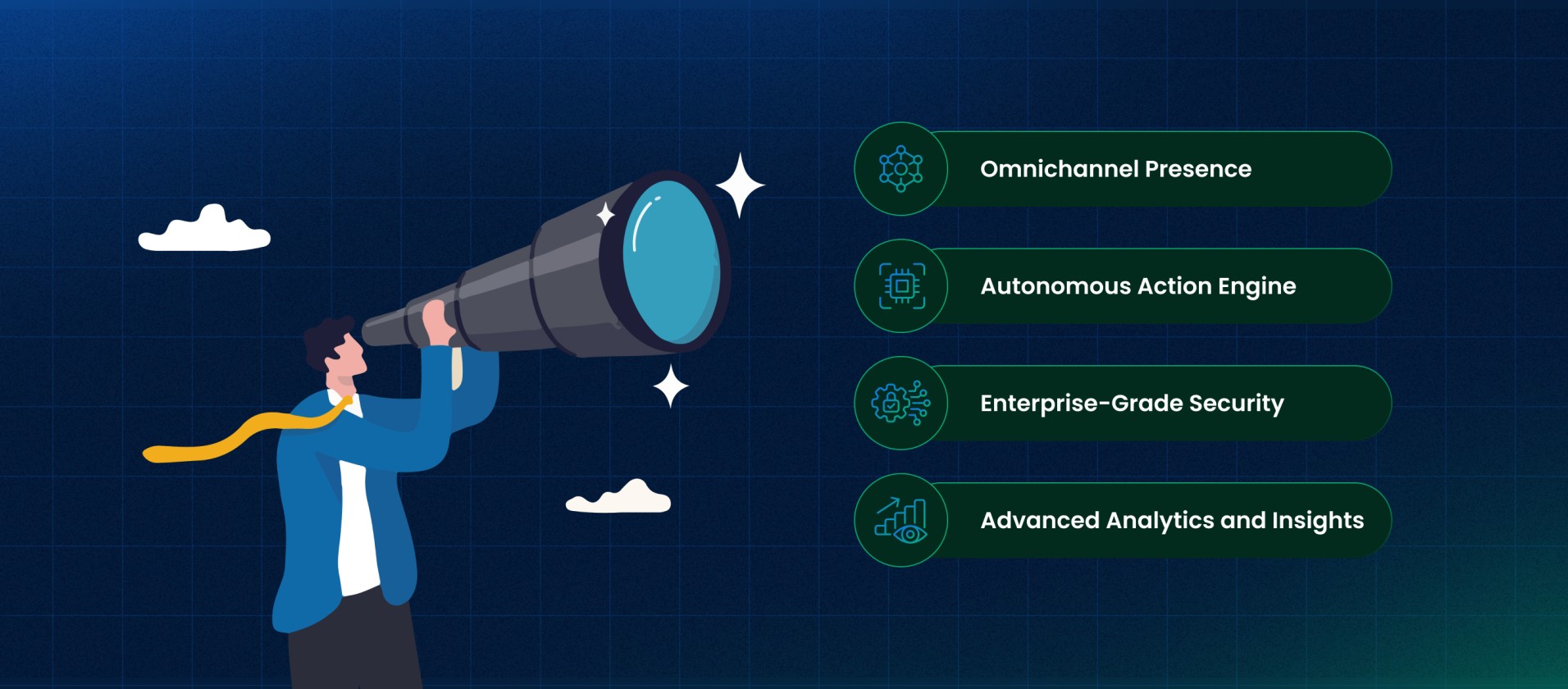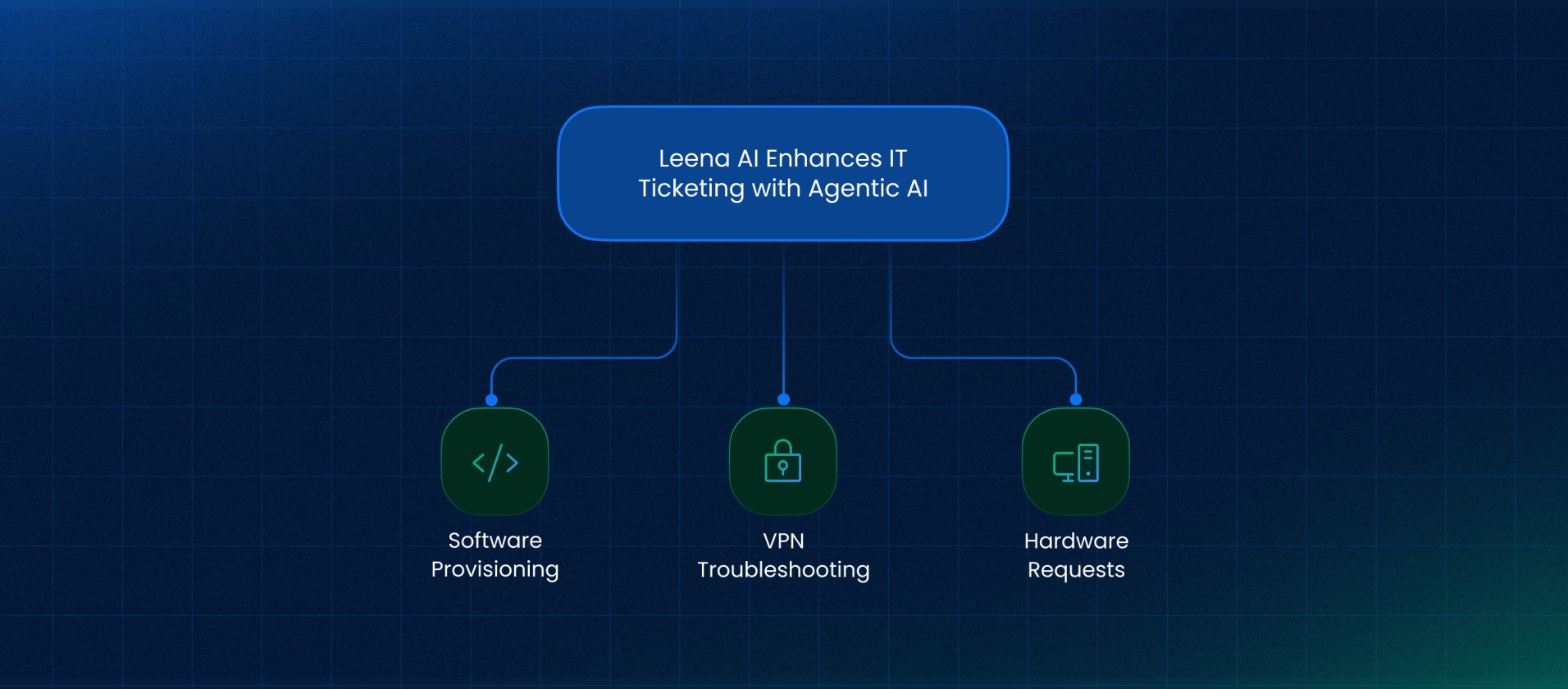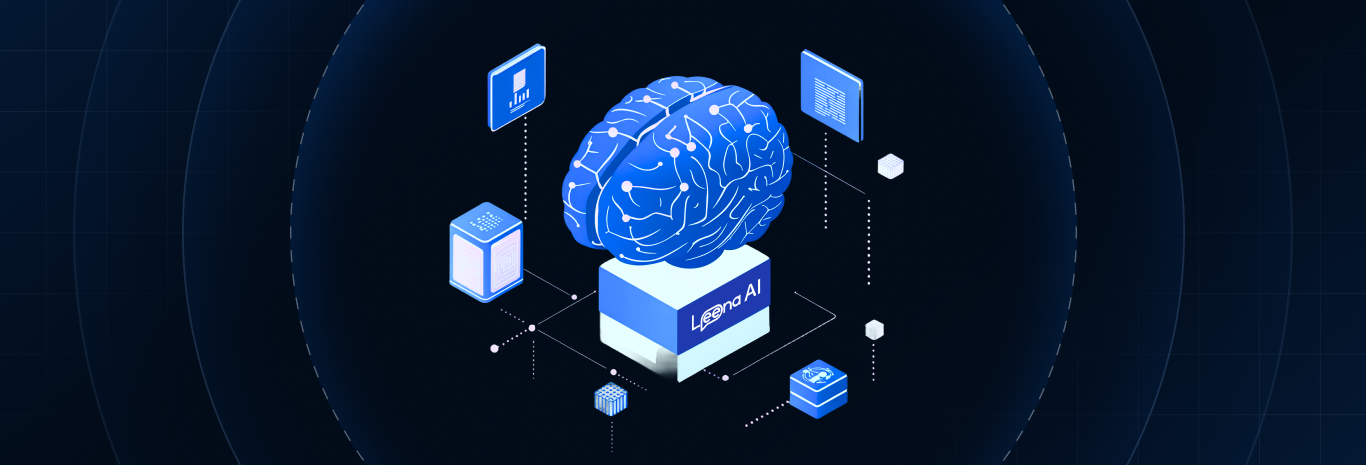Introduction
Your best engineer is locked out of their account minutes before a major deployment. Your new sales hire on the West Coast can’t access the VPN. Every minute they wait for a fix is a minute of lost productivity. This daily, low-level friction costs more than you think. The solution isn’t just hiring more IT staff; it’s empowering them with a modern it ticketing system. This isn’t the clunky software of the past, a glorified email inbox. The modern system is the central nervous system for your entire IT operation, a strategic tool that can transform employee experience and unlock massive productivity gains.
This guide is for you, the leader who sees technology not just as a cost center, but as a business accelerator. We’ll explore what defines a great it ticketing system in 2025 and how new advancements like Agentic AI are changing the game entirely.
The Modern IT Ticketing System Explained
At its core, an it ticketing system is designed to bring order to chaos. It’s the difference between a frantic scramble of emails and Slack messages and a streamlined, visible, and manageable workflow.
What Is an IT Ticketing System and Why It’s Essential?
Think of an it ticketing system as the air traffic control for all your company’s technology issues and requests. When an employee has a problem, like a broken laptop or a request for new software, they submit a “ticket.” This ticket is a digital record that contains all the information about the issue.
Instead of requests getting lost in an inbox, the system logs, categorizes, and assigns each ticket to the right person. Consequently, this creates a single, organized channel for all IT support. It provides complete visibility into the volume and types of issues your team is facing, which is crucial for identifying recurring problems and making data-driven decisions. Without a proper it ticketing system, you’re flying blind, unable to measure performance, spot trends, or effectively manage your IT resources. For any large company, it’s not just essential; it’s foundational.
Core Capabilities of a High-Performing IT Ticketing System
The difference between a basic system and a high-performing it ticketing system lies in its ability to be intelligent and proactive. In 2025, that intelligence is paramount.
Key Features of Modern IT Ticketing Systems

A modern platform goes far beyond simply logging tickets. It actively works to resolve them faster and prevent them from happening in the first place. Here are the features that matter most:
-
Omnichannel Support: Employees should be able to get help where they already work. A great it ticketing system integrates directly into tools like Slack and Microsoft Teams, allowing users to create tickets and get updates without switching context.
-
Intelligent Automation: The system should automate routine tasks that consume your team’s valuable time. This includes automatically routing tickets to the right specialist, sending status updates to users, and closing tickets after confirming the issue is resolved.
-
AI-Powered Self-Service: Instead of waiting for a human, employees can get instant answers. The system leverages a central knowledge base to power smart chatbots and user-friendly portals, deflecting common questions and empowering employees to solve their own problems. This is the first line of defense in an efficient it ticketing system.
-
Powerful Analytics and Reporting: You can’t improve what you can’t measure. Modern systems provide intuitive dashboards that track key metrics like resolution times, agent performance, and employee satisfaction. Moreover, they use this data to offer predictive insights into potential future problems.
The Business Impact of an Advanced IT Ticketing System
As a leader, you care about the bottom line. A strategic investment in your it ticketing system pays dividends across the entire organization.
Benefits of Implementing an IT Ticketing System
Moving to a modern solution creates a ripple effect of positive outcomes that directly impact business performance and employee morale.
First and foremost, you’ll see a dramatic increase in operational efficiency. By automating routine tasks and enabling self-service, you free up your skilled IT professionals to focus on high-impact projects that drive the business forward, instead of being bogged down by password resets.
Secondly, this leads to significant cost savings. Resolving tickets faster means less employee downtime. A more efficient IT team can handle a higher volume of requests without needing to increase headcount. An advanced it ticketing system optimizes resource allocation, ensuring you get the most out of your technology investments.
Finally, and perhaps most importantly, it delivers a vastly improved employee experience. In today’s competitive talent market, a frictionless, consumer-grade support experience is a key differentiator. When employees can get quick, easy solutions to their tech problems, they are happier, more engaged, and more productive. This is the hallmark of a world-class it ticketing system.
Elevating Your IT Ticketing System with Agentic AI
Automation and self-service are great, but what if your system could do more? What if it could act like an autonomous member of your team? This is the next frontier, and it’s powered by Agentic AI.
How Leena AI Enhances IT Ticketing with Agentic AI
Leena AI is pioneering the use of Agentic AI to transform the it ticketing system. Our platform doesn’t just route tickets or suggest knowledge articles; it creates a digital agent that autonomously resolves them.
Think of it this way: a standard chatbot can point you to a password reset guide. Leena AI’s digital agent understands the request, securely verifies the user’s identity, connects to your identity management system (like Okta or Azure AD), performs the reset, and confirms with the user that the issue is solved. All of this happens in seconds, without any human involvement.
This is a fundamental shift. Our Agentic AI is designed to handle multi-turn conversations and execute complex workflows across your enterprise applications. For example, it can handle:
-
Software Provisioning: An employee requests access to Salesforce. The agent checks their role, gets manager approval within Slack, and then provisions the license directly in your system.
-
VPN Troubleshooting: A user reports a connection issue. The agent asks a few diagnostic questions, runs tests, and can even reset their VPN profile.
-
Hardware Requests: A new hire needs a laptop. The agent guides them through the available options, places the order in your procurement system, and schedules the delivery.
This is how Leena AI elevates your it ticketing system from a passive record-keeper to an active, problem-solving engine.
Seamless Integration for Your IT Ticketing System
Adopting new technology shouldn’t mean ripping out everything you’ve already built. The best solutions enhance your existing infrastructure, not replace it.
Integrating Leena AI into Your Existing ITSM Platform
We understand that you have significant investments in platforms like ServiceNow, Jira Service Management, or Zendesk. That’s why Leena AI is built as an intelligent layer that sits on top of your current it ticketing system.
Our integration process is designed to be seamless and non-disruptive. Leena AI connects to your existing platform, acting as the new, intelligent “front door” for your employees on channels like Slack or Teams. When a request comes in, our digital agent attempts to resolve it autonomously. If it requires human expertise, the agent gathers all the necessary information, creates a perfectly detailed ticket, and routes it within your existing it ticketing system.
This approach gives you the best of both worlds. You gain the power of Agentic AI to deliver instant resolutions and a world-class user experience, all while preserving your existing workflows, reporting, and system of record. It’s an upgrade, not an overhaul.
The Future of the IT Ticketing System
The it ticketing system is evolving faster than ever. As we look ahead, a few key trends are shaping the future of IT support and service management.
The Future of IT Ticketing: Trends and Innovations
The future is predictive, personalized, and extends far beyond the traditional boundaries of IT.
First, the focus is shifting from reactive resolution to predictive prevention. The next-generation it ticketing system will use machine learning to analyze data from across your technology stack. It will identify patterns and anomalies that signal a potential outage, like unusual server activity, and automatically create a ticket to address the issue before it ever impacts an end-user.
Second, the experience will become hyper-personalized. The system will know who the user is, what hardware and software they use, and their past support history. This context will allow it to provide tailored solutions and proactive suggestions, making the support experience feel effortless and intuitive.
Finally, the principles of the it ticketing system are expanding across the business in a model known as Enterprise Service Management (ESM). The same platform that handles a software request can also manage an HR onboarding process or a facilities maintenance request, creating a single, unified service portal for the entire organization.
Your IT Ticketing System: From Cost Center to Strategic Asset
The journey of the it ticketing system is one of remarkable transformation, from a simple digital logbook to an intelligent, autonomous engine that powers employee productivity. By embracing automation, focusing on the user experience, and leveraging the groundbreaking power of Agentic AI, you can turn your IT support function into a true strategic advantage.
Ready to see what an autonomous it ticketing system can do for you? Let’s explore the possibilities together.
Frequently Asked Questions about the IT Ticketing System
1. What is the primary purpose of IT ticketing systems?
The primary purpose of an it ticketing system is to centralize, manage, and track all IT-related support requests and issues from employees. It turns chaotic emails and messages into organized tickets, ensuring every request is handled efficiently and nothing falls through the cracks.
2. How does an IT ticketing system improve security and compliance?
A modern it ticketing system improves security by creating an auditable trail for every IT action, such as granting access to sensitive systems. It enforces standardized approval workflows and helps ensure that all activities comply with company policies and regulatory requirements.
3. Can an IT ticketing system integrate with other software?
Yes, absolutely. A key feature of a modern it ticketing system is its ability to integrate with a wide range of other business tools, including collaboration platforms (Slack, Teams), identity management systems (Okta), and cloud infrastructure, creating a connected and automated IT ecosystem.
4. What is the difference between a help desk and an IT ticketing system?
A help desk is the team or function that provides support, while the it ticketing system is the software they use to manage that process. The system is the underlying technology that enables the help desk to operate effectively.
5. How does AI change the way IT ticketing systems work?
AI transforms an it ticketing system from a reactive tool to a proactive one. It powers self-service chatbots, intelligently routes tickets, predicts future issues, and with Agentic AI like Leena AI, it can autonomously resolve complex requests from end to end without human intervention.
6. What kind of ROI can I expect from implementing a modern IT ticketing system?
The ROI from a modern it ticketing system comes from several areas: reduced employee downtime (higher productivity), increased IT team efficiency (cost savings), lower ticket volumes through self-service and automation, and improved employee retention due to a better work experience.













